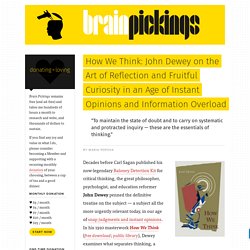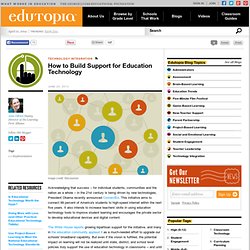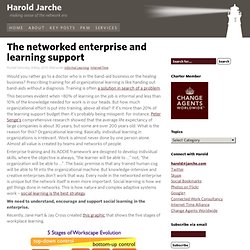

What will your MVP get you?

1. Idea validation If you are getting organic users it means your product is bridging up some gap in the market. Workshop CEI’s Relationship Capital – The Currency of Abundance is a half-day workshop designed to offer a fresh perspective about how relationship capital is cultivated, created and deployed.

You will be engaged throughout the four-hour session learning and practicing techniques that will: Broaden your perspective & understanding of how trust is earnedAccelerate how you impact and enrich relationshipsEnhance client loyalty in a thoughtful manner. February 1, 2017 | 11:30 AM - 1:30 PM Presenters Marc Rosen & Judy Bodenhamer Professional service providers are being challenged like never before to distinguish themselves.

Whether working directly with a business owner, key stakeholder or serving on a cross-functional team of experts, the need to develop greater relationship currency and trust is tantamount to sustained success. Technical and functional expertise is the foundation for effective performance; however, a growing body of evidence reveals that both client and other trusted adviser engagement is what truly advances & sustains relationships.
You will be introduced to a five stage model with deployment examples so that you can better harness and leverage the distinctive assets of you and the firm. As you embark upon 2017, this webinar will be extremely pertinent and serve as a catalyst for building greater relationship capital across the stakeholder spectrum. Location: Ice Miller LLP250 West St. Lunch will be provided. Topics. How We Think: John Dewey on the Art of Reflection and Fruitful Curiosity in an Age of Instant Opinions and Information Overload. Decades before Carl Sagan published his now-legendary Baloney Detection Kit for critical thinking, the great philosopher, psychologist, and education reformer John Dewey penned the definitive treatise on the subject — a subject all the more urgently relevant today, in our age of snap judgments and instant opinions.

In his 1910 masterwork How We Think (free download; public library), Dewey examines what separates thinking, a basic human faculty we take for granted, from thinking well, what it takes to train ourselves into mastering the art of thinking, and how we can channel our natural curiosity in a productive way when confronted with an overflow of information. Dewey begins with the foundation of reflective thought, the defining quality of the fruitful, creative mind: Such thoughts grow up unconsciously and without reference to the attainment of correct belief.
Best Books on Psychology, Philosophy, and How to Live Meaningfully. After the year’s most intelligent and imaginative children’s books and best science books, here are my favorite books on psychology and philosophy published this year, along with the occasional letter and personal essay — genres that, at their most excellent, offer hearty helpings of both disciplines.

Perhaps more precisely, these are the year’s finest books on how to live sane, creative, meaningful lives. Werner Herzog is celebrated as one of the most influential and innovative filmmakers of our time, but his ascent to acclaim was far from a straight trajectory from privilege to power. Wp-content/uploads/2011/12/09-04-17-Social-learning-capability-v2.1.pdf. Wp-content/uploads/2011/12/09-04-17-Social-learning-capability-v2.1.pdf.
How to Build Support for Education Technology. Image credit: iStockphoto Acknowledging that success -- for individual students, communities and the nation as a whole -- in the 21st century is being driven by new technologies, President Obama recently announced ConnectEd.

This initiative aims to connect 99 percent of America's students to high-speed internet within the next five years. It also intends to increase teachers' skills in using education technology tools to improve student learning and encourages the private sector to develop educational devices and digital content.
Alliances. Connectivist. The networked enterprise and learning support. Would you rather go to a doctor who is in the band-aid business or the healing business?

Prescribing training for all organizational learning is like handing out band-aids without a diagnosis. Training is often a solution in search of a problem. This becomes evident when ~80% of learning on the job is informal and less than 10% of the knowledge needed for work is in our heads. But how much organizational effort is put into training, above all else? Online learning is more efficient than face to face training – d. Today I took part in the inaugural live online session run by the British Institute for Learning and Development (BILD).

It used The Open University’s Flash Meeting platform, which was a new one for me. The session debated the following motion: ‘Online learning is more efficient than face to face training – discuss’ I happily presented the case for the motion. ASCD Home. 5 Powerful Forces That Are Keeping You From Learning. A Guest Post by Jeff Cobb of Mission to Learn Are you a lifelong learner?

Given that you are reading a blog like Goodlife Zen, I’m betting that your answer to that question is a resounding ‚”Yes, of course! Web 2.0 and Emerging Learning Technologies/Web 2.0 Tools - Wikib. Shen-yu Huang Institute of Education The Program of Learning Technology National Chiao-Tung University, Taiwan Introduction of Web 2.0 tools[edit] Web 2.0 is an emerging applications between knowledge creation and knowledge sharing, which accumulates collective knowledge in a spiral fashion.

Web 2.0 is concerned with active knowledge sharing and creation, whereas Web 1.0 is about passive viewing of content. Associated with the impact on human life, take for example, Web 2.0 help enterprise gather the new information or idea through on line community embedded in the intranet. TheFutureOfLearningInTheKnowledgeSociety.pdf (application/pdf Ob. Learning 3 – what are the key competencies for learning professi. On Friday I attended the Learning 3 symposium at the British Museum in London along with Jane Hart, Laura Overton and a crowd of others, mostly from the UK Further and Higher Education sectors. Here’s a picture of me at the event producing a 30-second series of sound bites on what the future of Learning and Development needs (the picture links to a video on the Learning 3 Ning site).
What our hosts LLUK (and particularly Briony Taylor) wanted to stimulate was a dialog around this question: What are the skills and competencies needed by the lifelong learning sector now? v3p313-323-131.pdf (application/pdf Object) Collaborative Learning – for the people, by the people by Josh L. Should training organizations cancel their LMS subscriptions, take a hammer to their laser pointers, and bury their Webcams? By all means, NO! Formal learning is needed in most organizations. What we must do is redefine ourselves as learning construction experts. 25 Free Lifelong Learning Resources. The Internet has made the lifelong pursuit of knowledge easier for nearly everyone in the world. There are tons of websites dedicated to providing free courses, reference books, education apps, and other learning materials. Here are 25 stand-out sites that would be useful to almost any lifelong learner.
Clusty – This unique search engine sorts results into clusters of related information so that it is easier to sort out the relevant from the irrelevant. Schoolr – Schoolr is a fully-customizable search engine that can be used to search Google, Wikipedia, and other popular sites. My Learning Tools « ID and Other Reflections. I just finished reading Harold Jarche’s post: Seek, Sense, Share In the post, he talks about how seeking information, then applying our personal sense-making filters to it, and finally sharing it helps us to see the interconnections, patterns and the larger whole. This is why the process of “seek, sense, share” becomes so important in one’s personal learning and knowledge management. eLearning Guild Learning in 3D Webinar Resources. Top 100 Learning Game Resources. Upsidelearning. Learning and KM insights - Friday, September 10, 2004. Personal KM: one-person enterprise Still thinking of personal KM...
There is a very funny analogy here with KM in general: some people are fixated on PKM technologies and others saying that this is wrong (next to it, of course, there is a whole discussion on using the "wrong" term to label the phenomenon :) For me the truth is somewhere in between. You can hardly think about successful KM initiatives that do not employ any technology at all, but at the same time it's almost obvious that technology is not the solution, but only part of it and, probably not the most critical part. A List of the Top 200 Education Blogs. All those interested in education’s have got you covered. From humor blogs on college life to one stop shops for school athletics to blogs all about education policy and new technologies, if there’s a good education blog out there, you can bet it made our list. And if you’re looking for something off the beaten track, check out our blog, My Dog Ate My Blog. Fortress, Gated Community, and Free-range Learning at Sims Learn.
Open and distance learning profession. Experiential Learning & Experiential Education: Philosophy,